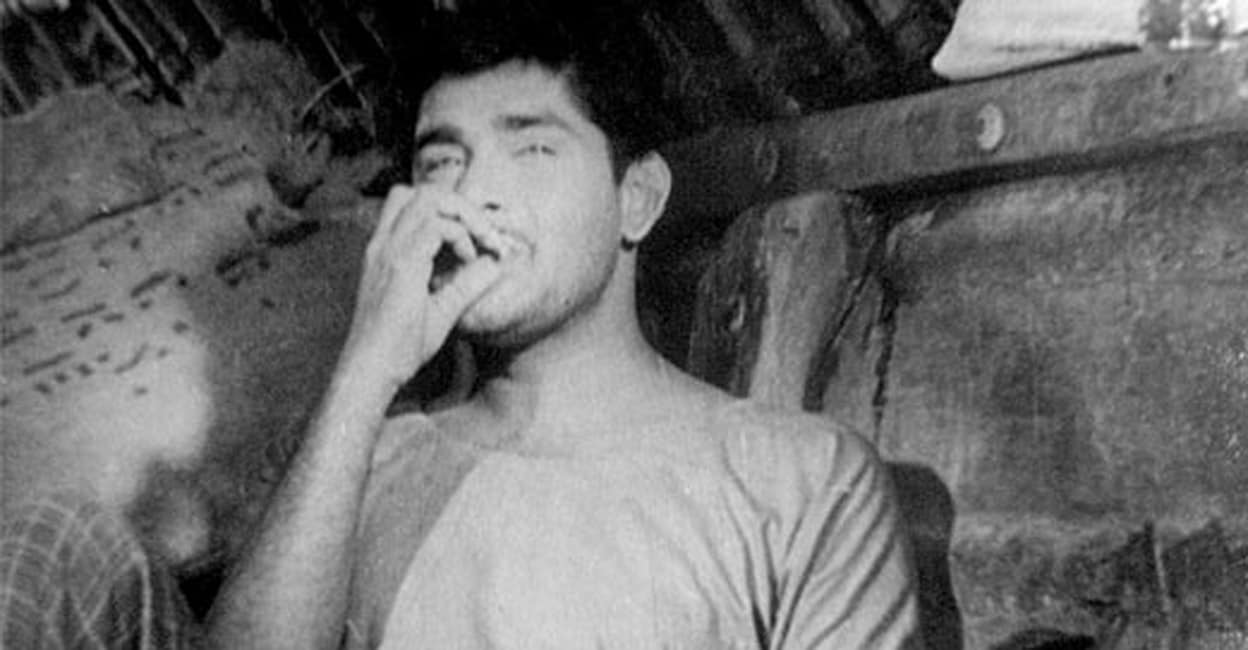Priyadarshan-Mohanlal team's 'Olavum Theeravum': A monochrome echo of a classic | ‘Manorathangal’ Series Review

Mail This Article
'Olavum Theeravum,' the final segment in the anthology web series 'Manorathangal' on Zee5, based on M.T. Vasudevan Nair's short stories and directed by the ace filmmaker Priyadarshan, despite boasting some of the top names in the industry like Mohanlal and Santhosh Sivan, remains a black-and-white shadow of P.N. Menon's 1970 original starring Madhu. The decision to present the featurette in monochrome, whether made during production or in the post, complements the storytelling but renders Santhosh Sivan's frames somewhat too bland in many scenes. However, it enables Priyadarshan to pay homage to Steven Spielberg's famous 'girl in the red coat' scene from his anti-war film 'Schindler's List'.
While Spielberg's use of the red coat is a bold way to highlight the atrocities committed by Nazis against Jews, Priyadarshan uses a red bangle to symbolise the blossoming of love and hope in the life of Nabeesa (Durga Krishna) for the first time. The director also employs this trope to depict Baputty's despair when he realises that he has truly lost the love of his life. These are the moments when Priyadarshan's 'Olavum Theeravum' surpasses the original film.

The narrative reaches its peak when Nabeesa, after being raped by Kunjali (Hareesh Peradi), rejects Baputty's helping hand. In the 1970 original, when Nabeesa, played by Ushanandini, declines Bapputy's (Madhu) offer of marriage despite knowing what has happened to her, the depiction reinforces the notion that man is the saviour of women, subtly upholding a patriarchal society's view of a rape survivor. However, when Durga's Nabeesa decides against accepting a helping hand, it showcases how we have advanced as a society. Although the series pays homage to the veteran Malayalam writer, the filmmaker's decision not to deviate from the original text by avoiding Nabeesa's suicide, leaves the classic’s potential for a timeless reinvention unrealised.
The empathy that the heroes of MT and Padmarajan showed towards their women in 1970's 'Olavum Theeravum' and 1986's 'Namukku Parkkan Munthirithoppukal' was way ahead of their time. The fact that MT's short story 'Olavum Theeravum' was written 13 years before the film highlights his significance in Malayalam literature.
The way MT developed Beevaathu's (mother of Nabeesa and Abdu) character is another example of writing ahead of its time. In that way, MT's Beevaathu and Ritwik Ghatak's mother character (Gita Dey) in his 1960 film 'Meghe Dhaka Tara' have a lot in common. At a time when such characters were often given negative shades to enhance melodrama, MT and Ghatak chose to portray their mother characters as individuals who only wanted to give their daughters a better life than they had. They also saw their daughters, either through marriage or through work, as a means to climb out of the pit of poverty they were stuck in. It is this weakness that makes Beevaathu easy prey for Kunjali and leads Gita Dey's mother character in 'Meghe Dhaka Tara' to cling to her daughter Nita (Supriya Choudhury), eventually becoming the reason for her death.
Casting works wonders in the 2024 version of 'Olavum Theeravum', with Durga, Surabhi, Hareesh Peradi as Kunjali, and others shining in their roles. Mohanlal as Baputty and Mamukkoya as Mammadikka have little to challenge them in their roles, and the latter shines brighter in that minimalism.
Priyadarshan's 'Olavum Theeravum' offers a visually striking homage to the past while striving to resonate with contemporary audiences.


